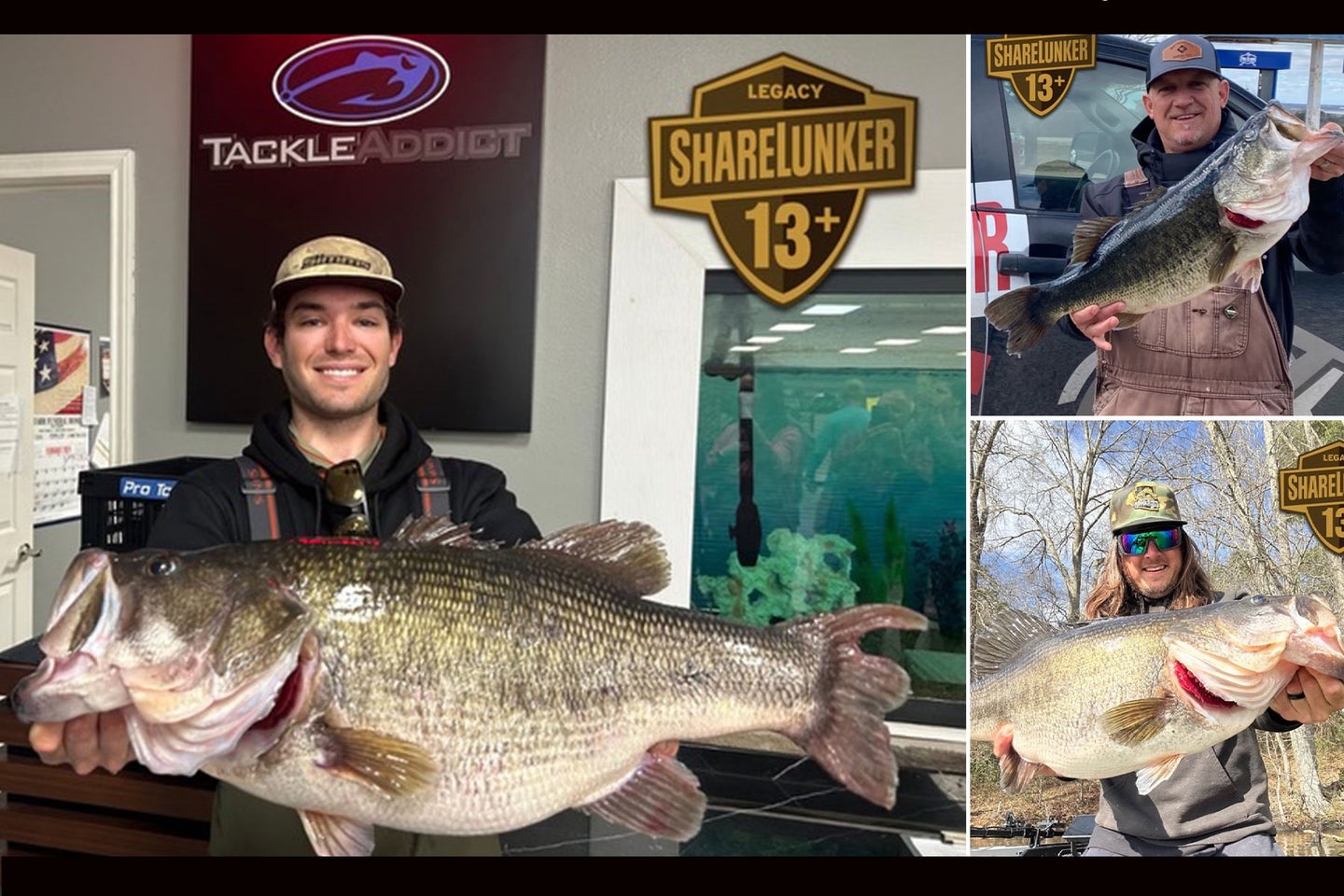Three 13-Pound Largemouth Bass Caught in One Day in Texas
Texas Parks & Wildlife recognized all three bass as part of the state's ShareLunker Program

Only 21 U.S. states have ever produced a largemouth bass bigger than 13 pounds. In one memorable day last week, Texas produced three.
Anglers Aaron Suess, Alec Morrison, and Ben Milliken all caught 13-pounders on Feb. 5 and entered their bass in the Texas Parks and Wildlife (TPW) Toyota ShareLunker Program. Launched by TPW in 1986, ShareLunker is designed to promote and enhance largemouth bass fishing in Texas.
Suess caught a 13.87-pound largemouth from O.H. Ivie, a 19,000-acre lake in central Texas. Morrison boated his 13.82-pound bass at Sam Rayburn Reservoir, a 114,000-acre lake in east Texas. Milliken did not disclose where he caught his largemouth, which weighed 13.15 pounds, but in a Facebook post he wrote that it was his fifth ShareLunker-sized bass in 18 months, but the first that he turned in.
Anglers who catch a bass that’s at least 8 pounds or 24 inches can enter their catch information online to be recognized in ShareLunker’s entry-level 8+ class. But it’s the top tier Lunker Legacy Class, of course, that draws the most attention. Anglers who catch a largemouth weighing at least 13 pounds are encouraged to join the Lunker Legacy Class by “loaning” their fish to TPW during the January to March bass spawn.
TPW biologists use these trophy specimens for a selective breeding program that is designed to improve the size and genetic quality of bass in the Lone Star State. TPW maintains a hotline that fishermen can call if they’ve caught a top tier lunker, and the department dispatches staff anywhere in the state to pick up lunker fish. The department also has official weighing and holding stations at more than a dozen lakes across the state for anglers who need help taking care of their fish until TPW staff arrive.
Read Next: Why Did Game Wardens Seize an Angler’s Record-Setting Crappie and Scrub it From the Record Books?
Suess, Morrison, and Milliken’s big largemouths—ShareLunker entries 654, 655, and 656 respectively—were transported to the Texas Freshwater Fisheries Center in Athens. As for what mysterious factors aligned to make Feb. 5 such a banner bass day, who can say? Must be something in the water.
